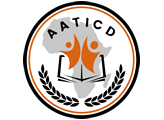Why Attend
This course goes beyond the theory of budgeting as a concept to cover specific steps to make the budget a value-added process in the organization. By building user-friendly models and applying scenario analysis, management will spend less time gathering data and more time analyzing this data for decision making. Several Microsoft Excel tools are used throughout this course to make it practical and to provide participants with the skills needed to apply these tools in their organization immediately. Such tools include ‘what-if’ analysis and the ‘solver’, among many others.
The course also highlights some of the main forecasting models and the detailed evaluation of capital budgeting techniques, all of which are applied in Microsoft Excel and put into practice.
Course Methodology
The course is a hands-on application on how to use MS Excel in budgeting and forecasting. Participants will be involved in exercises, individual and group presentations, and will work on several case studies.
Course Objectives
By the end of the course, participants will be able to:
- Evaluate the budgeting process in their organizations and recommend improvements
- Create budget templates and models for their departments or organizations
- Apply several forecasting techniques to better manage uncertainties in budgeting
- Evaluate capital budgeting decisions using several methods and recommend proper action
- Utilize Microsoft Excel functions and tools in the budgeting process including break even analysis and optimization
Target Audience
Finance directors, managers, controllers, accountants, budget analysts, budget owners and professionals who wish to expand their budgeting knowledge.
Target Competencies
- Budgeting
- Building models in Microsoft Excel
- Forecasting
- Evaluating proposals
- Applying Microsoft Excel functions and tools
- Assessing budgeting process
Location:
South AfricaTraining Dates:
Each course starts every Monday of each week. Please book your training on a date that is a Monday.Course Duration:
Unit Standard:
NQF Level:
Number of Credits:
Course Fees
Note: Please fill in the online application form on the left or bottom if this page to receive a quotation with detailed pricing from AATICD.How to Apply:
To Apply Simply Fill in the Online Enquiries / Applications form on the Right Sidebar or Bottom of this website https://www.aaticd.co.zaNB:
When filling the online application form; please take note of your desired Training Month, Duration in Weeks and Training Session. This will give us the exact dates you will be attending your classes.Also note that Tuition Fees must be paid upfront on or before training start date. This is to ensure that all resources are made availabe for you before you start. You will not be allowed into training if fees are not paid and verified.
Also note that Tuition Fees Cancellations must be made 14 business working days before the starting date of training. This will allow us to do a 50% refund of the total amount paid. If cancellations are made thereafter note that no refund will be made to delegates.
Tuition Fees include teas and lunch as well as either a laptop or tablet which a delegate will take home free of charge.
Tuition Fee DOES NOT include Accommodation, Dinners and other Extra Curricular Activities or Incidentals. Delegates are expected to fund this on their own. AATICD will not be held accountable for any incidents to delegates.
In-House Trainings are also available for 3 or more delegates for any duration. Please consult with our Administration for such In-House training bookings.
Course Outline
- Budgeting and planning
- The budget and the functions of management
- Budget as a planning tool
- Budgets and the key financial statements
- The top-down versus bottom-up process
- Budget cycle, process and approaches
- The budget cycle
- Characteristics of successful budgeting
- Making the budget a value-adding activity
- Top ten problems with budgeting
- Choosing the proper budgeting approach:
- Incremental budgeting
- Zero-based budgeting
- Flexible budgeting
- Kaizen budgeting
- Activity based budgeting
- Rolling (continuous) budgets and forecasts
- The master budget and its components
- Operating and capital budgets
- Best practices in budgeting
- Creating a user friendly budget template
- Forecasting techniques
- Forecasting models
- Qualitative and quantitative methods
- Steps in developing forecasting models
- Time series and trend analysis
- Data conditioning techniques
- Exponential smoothing and moving averages
- Simple and multiple regression analysis
- Advanced capital budgeting evaluation techniques
- Business risk and cost of capital
- Classifying investment projects
- Cash flow estimation
- Analyzing investment and operating cash flows
- The time value of money concept
- The required rate of return
- Net Present Value (NPV)
- Internal Rate of Return (IRR)
- Multiple internal rates of return
- Modified Internal Rate of Return (MIRR)
- Profitability Index (PI)
- Payback period and discounted payback period
- Capital rationing
- Comparing and evaluating techniques
- Sensitivity and risk analysis
- Breakeven analysis and optimization techniques
- Cost Volume Profit (CVP) analysis
- Using CVP to reach a target income
- Single product and multiple products breakeven analysis
- Working with budget constraints
- Building optimization models




